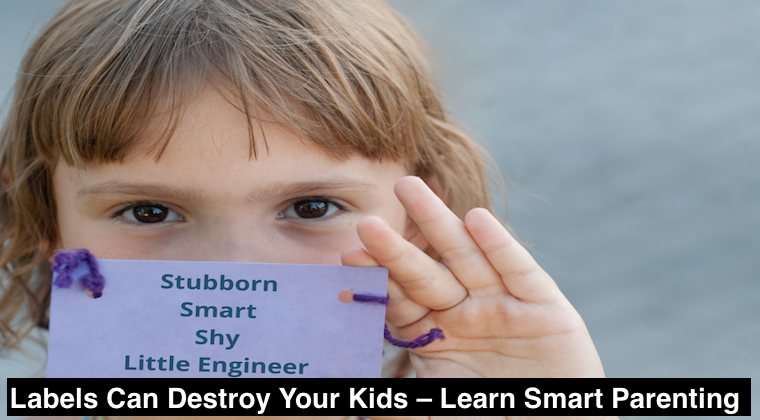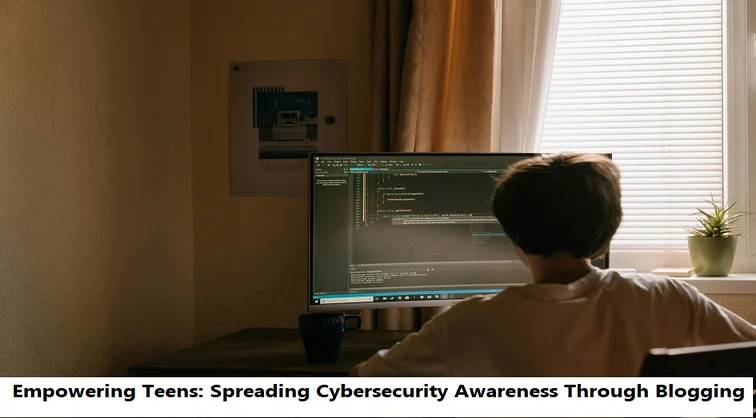+1 845 259 2974 (11 a.m to 7 p.m CST)
Labels Can Destroy Your Kids – Learn Smart Parenting

Labels, often casually thrown around, can deeply impact a child's sense of self. Words like "shy," "troublemaker," or "smart" might seem harmless but can shape how children view themselves and their abilities. These labels stick, limiting growth and fostering stereotypes. In this context, smart parenting emerges as a beacon of hope. It encourages understanding each child as an individual, not just a label. Smart parenting involves guiding children with empathy and awareness, helping them navigate their identity beyond simplistic tags. It's about fostering an environment where children can explore their full potential, free from the confines of labels. Monitoring apps are another helpful resource that makes smart parenting successful.
The Negative Impact of Labels
Negative labels like "lazy," "clumsy," or "troublemaker" can deeply affect a child's development. When a child repeatedly hears they are "lazy," they might start believing it, even if their inactivity is due to a lack of interest or motivation in specific tasks. Similarly, a child called "clumsy" might become overly cautious, avoiding physical activities to prevent mockery, thus missing out on essential physical development and social interaction.
Long-term, these labels can shape a child’s identity. A "troublesome" child might take on this role, thinking it's expected of them, leading to a self-fulfilling prophecy where they act out more. This behavior often stems from a belief that they can't change how others see them, so they embrace the label instead.
Labels can limit a child's willingness to try new things. If they've internalized a label implying a lack of skill or talent in an area, they might fear failure, thinking, "Why bother if I'm already known as the 'dumb one' in math?" This mindset can hinder learning and growth, preventing them from reaching their full potential.
Labels also impact emotional well-being. Children burdened with negative labels might feel misunderstood and isolated, leading to anxiety or depression. They may struggle with self-esteem, feeling that they're not good enough or that there's something fundamentally wrong with them, which can carry into adulthood, affecting their relationships, career, and mental health.
Smart Parenting: A New Approach
Smart parenting is a mindful and flexible approach to raising children. It focuses on understanding each child's unique needs and strengths, rather than fitting them into pre-set categories or expectations. Here’s what it involves:
- Empathy and Understanding: Recognizing the emotions and perspectives of your child and responding with sensitivity.
- Open Communication: Encouraging honest and open dialogue about feelings, thoughts, and experiences.
- Guidance Instead of Control: Guiding children through choices and consequences rather than controlling their actions.
- Positive Reinforcement: Focusing on positive behavior and strengths to build self-esteem and encourage growth.
- Adaptability: Being willing to change parenting strategies as your child grows and their needs evolve.
The importance of smart parenting in the modern world cannot be overstated:
- Dealing with Digital Dangers: In an era dominated by digital interactions, smart parenting helps navigate the challenges of online safety, cyberbullying, and screen time management.
- Preparing for a Changing World: It equips children with the emotional intelligence and adaptability they need to thrive in a rapidly changing world.
- Fostering Independence and Creativity: By focusing on guidance rather than control, smart parenting encourages independent thought and creativity, essential skills for the future.
- Emotional Well-Being: This approach supports the emotional and psychological well-being of children, helping them grow into resilient and well-adjusted adults.
Smart parenting is not a one-size-fits-all solution but a dynamic, responsive approach that evolves with the child, ensuring they feel supported and valued for who they are.
The Role of Monitoring Apps in Smart Parenting
In the digital age, monitoring apps have become vital tools for smart parenting. These apps allow parents to oversee their children's online activity, ensuring their safety while fostering independence. Here’s how they work:
- Activity Monitoring: Parents can see which websites and apps their child is using, helping to guard against inappropriate content.
- Communication Oversight: Some apps enable parents to monitor messages and social media interactions, protecting against cyberbullying.
- Location Tracking: Many apps offer GPS tracking, so parents know where their child is, enhancing physical safety.
Benefits of Monitoring Apps
- Protect Kids from Cyberbullying: By monitoring online interactions, parents can identify and address cyberbullying early.
- Track Location for Safety: GPS features ensure that parents know their child’s whereabouts, offering peace of mind.
- Encourage Positive Online Behavior: With oversight, children can learn responsible digital habits, understanding the importance of a positive online presence.
Choosing the Right Monitoring App
Selecting an effective monitoring app involves several considerations:
- Comprehensive Features: Look for an app that offers a wide range of monitoring capabilities, including web browsing history, app usage, and location tracking.
- User-Friendly Interface: The app should be easy for both parents and children to use and understand.
- Privacy Respect: Choose an app that balances safety with respect for your child’s privacy, fostering trust rather than feeling invasive.
Balancing safety with respect for your child’s privacy is crucial. It's about guiding them to navigate the online world safely and responsibly, not invading their personal space. A conversation about why monitoring is necessary can help them understand its importance as a protective measure, not a lack of trust. Smart parenting with monitoring apps is about keeping the digital world a safe, enriching space for children to explore and grow.
Implementing Smart Parenting without Labels
Using monitoring apps wisely and communicating about them with your child are crucial steps in smart parenting without relying on labels. Here's how to approach this:
Tips for Using Monitoring Apps Wisely
- Set Clear Boundaries: Establish what is monitored and why. Make sure your child understands the purpose is safety, not spying.
- Use with Discretion: Only check the monitoring app when necessary. Avoid over-monitoring to respect your child's privacy and independence.
- Focus on Teaching: Use the insights from the app to teach your child about online safety and responsible behavior, rather than punishing them for mistakes.
- Privacy Respect: Let your child know that their privacy is important to you. Explain that you'll avoid reading private messages unless there's a safety concern.
Here is how to communicate with your child about monitoring:
- Start with a Conversation: Introduce the topic of online safety and explain why you think a monitoring app is necessary. Highlight that it’s about ensuring their safety and well-being.
- Be Open to Their Input: Listen to their concerns and suggestions. This can help make the monitoring process a cooperative effort rather than a unilateral decision.
- Emphasize Trust and Safety: Make it clear that using a monitoring app doesn't mean you don't trust them. It's about keeping them safe in a world that can sometimes be dangerous.
- Review Together: Periodically review the monitoring insights together. This can be an educational opportunity and a way to discuss online behavior and safety.
By focusing on open communication and respectful use of monitoring apps, parents can support their children’s growth into responsible digital citizens without the need for negative labels. This approach fosters a positive parent-child relationship, built on trust and mutual respect, which is the essence of smart parenting.
Monitoring apps, when used wisely, become valuable tools in the smart parenting toolkit. They offer a way to ensure children's safety online, teach them about responsible digital behavior, and encourage positive habits that will serve them well into adulthood. However, the key to their effective use lies in balancing safety with respect for privacy, fostering an environment of trust rather than surveillance.
It's clear that smart parenting is not just about avoiding labels or using the right tools; it's about building a relationship with our children based on respect, understanding, and mutual trust. It's about preparing them for the world, digital and otherwise, with the skills and resilience they need to thrive. In doing so, we not only protect them but also empower them to become their best selves, free from the constraints of labels and equipped to face whatever challenges come their way.





















